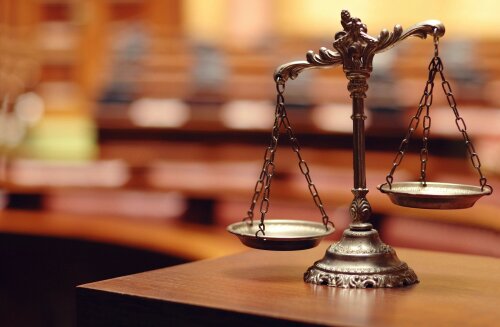Best Bankruptcy & Debt Lawyers in Patna
Share your needs with us, get contacted by law firms.
Free. Takes 2 min.
List of the best lawyers in Patna, India
India Bankruptcy & Debt Legal Questions answered by Lawyers
Browse our 2 legal questions about Bankruptcy & Debt in India and read the lawyer answers, or ask your own questions for free.
- Loans
- Currently I am multiple unsecured loans. Due to mental health issues I lost my job and all assets. So should I go for Individual bankruptcy?
-
Lawyer answer by Quartz Legal Associates
Based on the facts shared, it is explained that at present, individual bankruptcy in India is not governed by the Insolvency and Bankruptcy Code (IBC) because the provisions relating to ordinary individuals have not yet been implemented by the Government....
Read full answer - Sir, I have to take my payment from my customer party & he is not paying
- Sir, I'm doing textile business & have supplied fabric to my party amt is 4,12,536/00. My customer is not giving payment still he is capable.
-
Lawyer answer by Quartz Legal Associates
Based on the facts stated, it is my considered opinion that you have supplied fabric worth ₹4,12,536 to your customer in the ordinary course of your textile business, the goods have been duly delivered and accepted, and despite being financially...
Read full answer
About Bankruptcy & Debt Law in Patna, India
Bankruptcy and debt laws in Patna, and India overall, are regulated by the Insolvency and Bankruptcy Code (IBC) of 2016. This code combines the existing frameworks of bankruptcy and insolvency into a unified law, expediting the entire process. The IBC applies to individuals, companies, Limited Liability Partnerships and partnership firms, and seeks to resolve insolvency in a timely manner, safeguarding the interests of small investors and making it easier to conduct business.
Why You May Need a Lawyer
In situations of pending or accumulating debt, insolvency, or potential bankruptcy, professional legal guidance can be indispensable. Navigating the complex Indian legal landscape, negotiating with creditors, or filing for insolvency under the IBC are situations that warrant legal help. It's crucial that legal steps taken in these circumstances are accurate and timely, thus making proficient legal advice essential.
Local Laws Overview
The key aspects of local laws specific to bankruptcy and debt in Patna include the insolvency resolution process, liquidation and bankruptcy procedure. The Code takes a creditor in control approach, wherein the decision to resolve insolvency is made with the approval of the majority of the creditors. The Code also lays down a strict timeline of 180 days (extendable by 90 days) for resolving the insolvency. Should the resolution fail, the company's assets are liquidated to repay the creditors.
Frequently Asked Questions
1. What is the Insolvency and Bankruptcy Code, 2016?
The Insolvency and Bankruptcy Code, 2016 is a unified bankruptcy and insolvency law for India, designed to resolve insolvency in a timely manner, while promoting entrepreneurship and aiding in easier business conduct.
2. What is the insolvency resolution procedure under the IBC?
The insolvency resolution procedure involves creating a resolution plan with the approval of the majority of the creditors, and implementing the plan within a strict 180-day timeframe which can be extended by 90 days.
3. If the insolvency resolution process fails, what happens next?
If the insolvency resolution process fails, the company enters into liquidation. Assets of the company are sold to repay the creditors.
4. Can individuals file for insolvency or bankruptcy under the IBC?
Yes, individuals can file for insolvency or bankruptcy under the IBC, it doesn't just apply to corporate entities.
5. Do I need legal representation to navigate insolvency and bankruptcy laws?
While not mandatory, it is highly recommended to seek legal assistance when navigating complex insolvency and bankruptcy laws to ensure your interests are protected.
6. Can bankruptcy law help me clear my debts?
Yes, the bankruptcy process is designed to help you clear your debts. However, the specifics vary and legal advice should be sought.
7. Who gets paid first in a liquidation process?
The order of payments in a liquidation process is often determined by the status of the debt. Generally, secured creditors are given priority.
8. How long does the bankruptcy process take?
The bankruptcy process in India is designed to be expedient, with a insolvency resolution process timeline of 180 days, extendable by a further 90 days.
9. What is the role of the Insolvency and Bankruptcy Board of India?
The Insolvency and Bankruptcy Board of India oversees the insolvency proceedings, registers and regulates insolvency professionals and entities.
10. Can a company continue to operate during the insolvency resolution process?
Yes, a company can continue to operate under the direction of the resolution professional during the insolvency resolution process.
Additional Resources
The Insolvency and Bankruptcy Board of India, Ministry of Corporate Affairs, Reserve Bank of India and the Indian Bank Association are some of the key organizations with valuable resources related to bankruptcy and debt laws.
Next Steps
If you need legal assistance in debt or bankruptcy matters in Patna, India, then your first step should be seeking professional legal help. Identify a competent lawyer or law firm specialized in bankruptcy and debt laws and book a consultation. They can provide valuable assistance, from understanding the Insolvency and Bankruptcy Code to representing you in legal proceedings.
Lawzana helps you find the best lawyers and law firms in Patna through a curated and pre-screened list of qualified legal professionals. Our platform offers rankings and detailed profiles of attorneys and law firms, allowing you to compare based on practice areas, including Bankruptcy & Debt, experience, and client feedback.
Each profile includes a description of the firm's areas of practice, client reviews, team members and partners, year of establishment, spoken languages, office locations, contact information, social media presence, and any published articles or resources. Most firms on our platform speak English and are experienced in both local and international legal matters.
Get a quote from top-rated law firms in Patna, India — quickly, securely, and without unnecessary hassle.
Disclaimer:
The information provided on this page is for general informational purposes only and does not constitute legal advice. While we strive to ensure the accuracy and relevance of the content, legal information may change over time, and interpretations of the law can vary. You should always consult with a qualified legal professional for advice specific to your situation.
We disclaim all liability for actions taken or not taken based on the content of this page. If you believe any information is incorrect or outdated, please contact us, and we will review and update it where appropriate.
Browse bankruptcy & debt law firms by service in Patna, India
Patna, India Attorneys in related practice areas.










